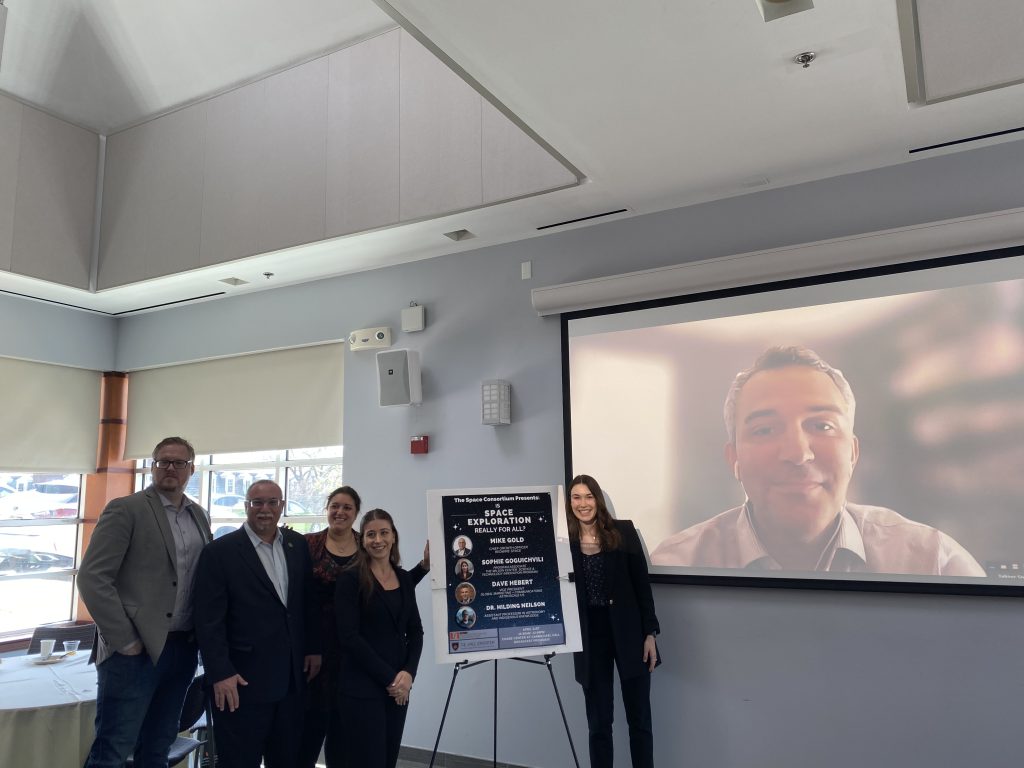Is Space Exploration Really for All?

Held in partnership with the Space Consortium during the 2023 Space Week, this dynamic panel approached the future of space exploration from a variety of perspectives, including international law and space governance, the commercialization of space, the protection of heritage and culture, and technological ingenuity. The discussion began with a central question, if space exploration is for all, and elicited mixed opinions. A healthy debate ensued about the legality and ethics of space exploration and if sufficient opportunities exist for more countries to participate in research and exploration. This discussion is ever important as we increasingly look toward its depths to support our future. Below is a deeper dive into the panelists’ individual commentaries.
Mike Gold
Chief Growth Officer, Redwire Space
Mike talked about the increasing commercialization of space, including civil and commercial partnerships between NASA and companies like Redwire. He also touched on the Artemis Accords, which are a US-led effort to lead in the future of lunar exploration. Of course, lunar exploration and resource utilization have both legal and ethical questions behind them. Mike was able to share his perspective and engage the crowd on how current space laws and regulations, such as the Outer Space Treaty and Moon Treaty, can support ongoing innovation in space.
Sophie Goguichvili
Program Associate, The Wilson Center Science & Technology Innovation Program
Sophie gave a background on international space law and a briefing on current US domestic regulations. She explained how the space race has changed from a great power competition between the USSR and the US to a competition between China and the US. At the same time, space has become a more congested, contested, and competitive domain. Satellite operators need to ensure that they have proper space domain awareness to navigate objects in orbit. The United Nations and the International Telecommunications Union play a role in registering space objects. Space is not the “Wild Wild West,” there is a foundation for governance. A few salient questions are:
- Who gets to write the rules?
- How do we collaborate with international partners?
The Wilson Center’s article, The Global Legal Landscape of Space: Who Writes the Rules on the Final Frontier? dives deeper into this discussion.
Dave Hebert
Vice President, Global Marketing & Communications, Astroscale, US
Dave’s company, Astroscale, brands itself as the “street sweepers” of space. He discussed the problem of space debris in the atmosphere and how it can inhibit future launches in excess. He advocated for a more unified approach to communication among space institutions, governments, and academia to better tackle ongoing problems in space, like space debris.
Dr. Hilding Neilson
Assistant Professor in Astronomy and Indigenous Knowledge
Hilding emphasized the importance of the moon in many cultures around the world and the fragility of its surface. He expressed a need for space experts to protect this common heritage through policies and laws to ensure that the moon’s surface is not destroyed during the exploration process.

